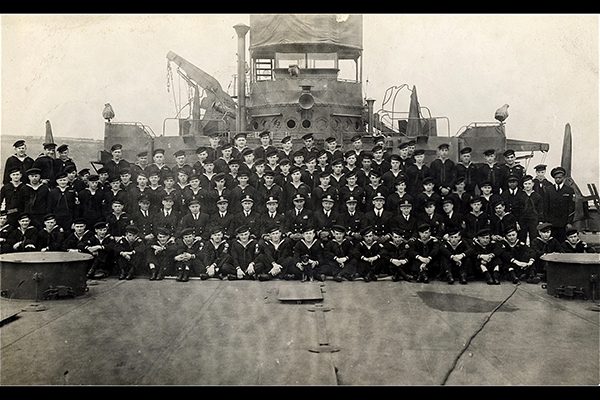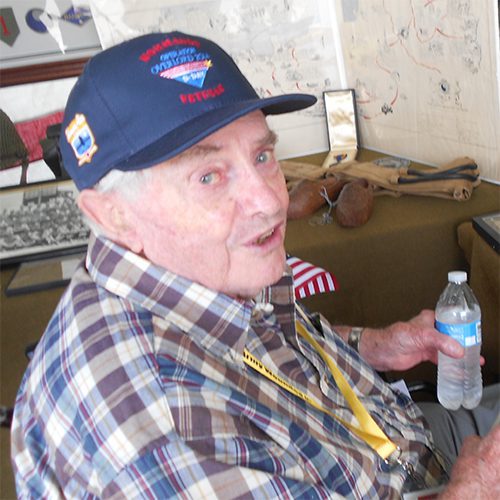Dean Scarborough

“His last big trip was in 2014 for the 70th anniversary of D-Day. The Western North Carolina Rotary Clubs sponsored a trip for D-Day veterans to attend the commemoration at the D-Day Memorial in Bedford, Virginia. He, accompanied by my mother and me, along with around 26 other veterans and select family members, made the trip by bus from Asheville and joined in the activities.
Each bus had medical personnel and volunteer Rotarians to aid the mostly 90-year-old D-Day survivors in the journey. It was a memorable experience and one that offered the community an opportunity to thank the veterans for their service, albeit 70 years later. Though he was 90 at the time, one of our favorite parts of the trip was the opportunity to relax in the hotel lounge with the volunteers and share stories and a beer. Daddy never turned down a free beer.
Less than two years after that trip, in March 2016, Daddy passed away from complications of a fall.”
– Beth Scarborough, Reference and Instruction Associate, J. Murrey Atkins Library
Dean Scarborough, remembered by his daughter, Beth Scarborough
Landing Ship Tank crew member Dean Scarborough never forgot what he witnessed during the D-Day invasion.
Dean Scarborough enlisted in the U.S. Navy on Oct. 6, 1942, at the age of 18. He was assigned to Landing Ship Tank 338 (LST-338) when it was commissioned in December 1942. His ship experienced the Sicilian invasion in July 1943, which saw 546 sailors perish. He was at Salerno in September 1943 (for the Allied invasion of Italy), but nothing prepared him for Omaha Beach and the D-Day invasion on June 6, 1944, despite nine months to get ready.
One of the LST-338’s tasks was pulling the bodies of U.S. soldiers out of the surf during the amphibious landing. Many of the soldiers, clad with heavy backpacks filled with gear, never made it to shore before succumbing to the rough waters. It was a sight Scarborough never forgot.

He said the weather caused much confusion — from ship delays in deployment to boats depositing soldiers too far out into the surf for them to obtain a solid footing. The heavy backpacks also caused those who made it to the beach to be too slow to move out of harm’s way. He often wondered what would have happened if the invasion had waited until June 8, when the skies opened up and cleared after four days of heavy rain.
Scarborough returned to the United States in July 1945; he expected to be deployed to the Pacific. But the surrender happened while he was awaiting further instructions.
He didn’t talk very much about the action, but he often talked about his days in the Navy and the places he visited. He was a country boy before the war and had never been outside the South. He later joined an LST association and traveled with my mother to conventions in various locations, connecting with other LST soldiers and their wives. He visited the WWII Museum in New Orleans during one such trip.